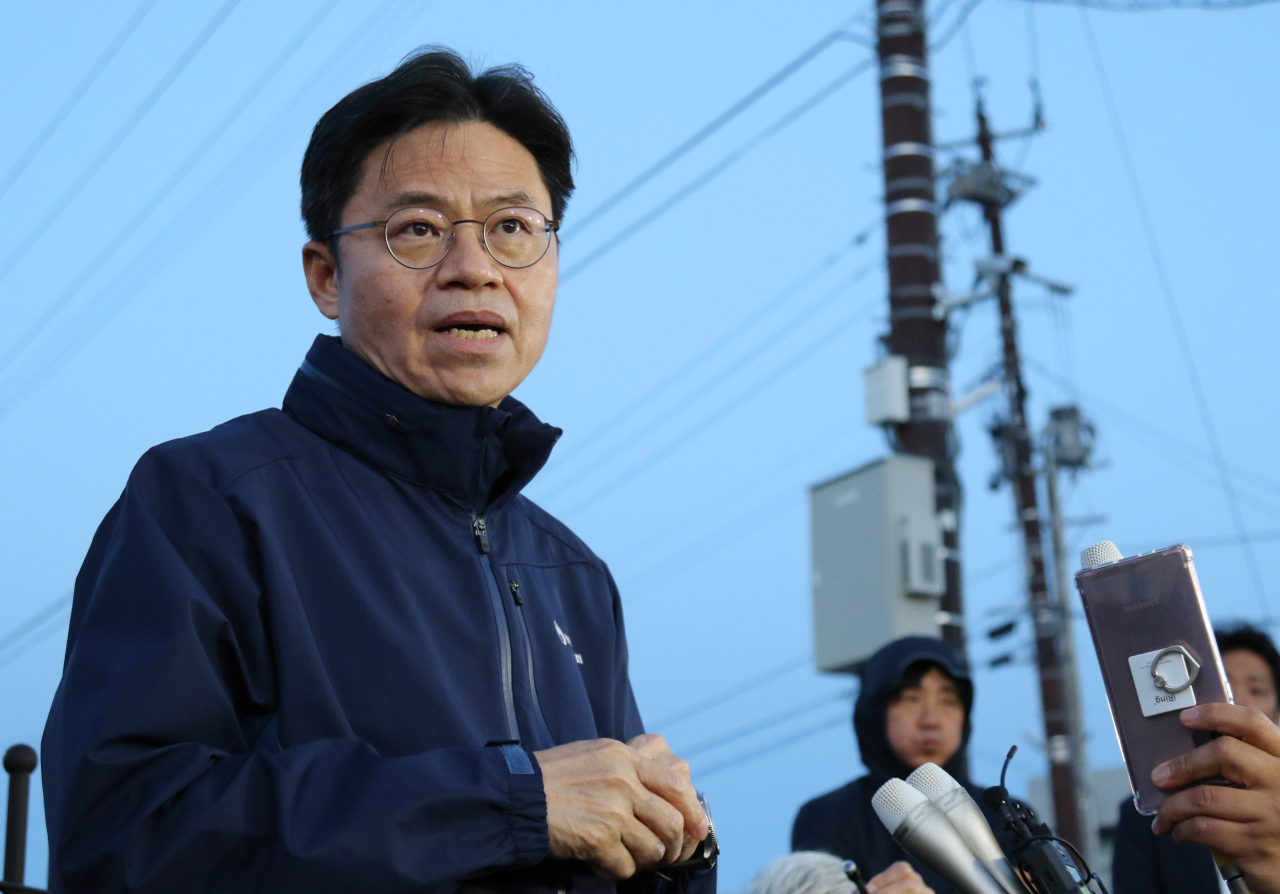S. Korean experts complete two-day inspection of Fukushima plant's water treatment facilities
By YonhapPublished : May 24, 2023 - 21:49

TOKYO/SEOUL -- A South Korean team of experts visiting the crippled Fukushima nuclear power plant on Wednesday completed their two-day on-site inspection of facilities for the dilution and discharge of radioactive water, amid concerns over Tokyo's plan to release tons of contaminated water into the sea this summer.
The 21-member team, headed by Nuclear Safety and Security Commission Chairperson Yoo Guk-hee, is currently on a six-day visit to Japan to assess whether the treated water is safe enough to be discharged into the sea.
On Tuesday, the experts began a two-day inspection of the Fukushima nuclear plant and examined the plant's custom purification system, known as ALPS, and facilities related to the K4 tanks, which are designed to store and conduct measurements of radioactive substances.
The team on Wednesday visited a nuclide analysis facility and examined the seawater dilution system and discharge facilities, including the dilution pumps' capacity and how they function.
After Wednesday's inspection, Yoo told reporters that the team will likely be able to "make progress" in terms of assessing the safety of the water.
"We examined all the facilities we wanted to see ... but we need to engage in additional analysis of their function and role," he said without mentioning whether the findings were sufficient to reach a conclusion.
According to Yoo, the team, in particular, closely examined the blocking valves that are used when an anomaly is found before the ALPS treatment.
The team also received data on the nuclide concentration levels in the radioactive water before and after the ALPS treatment to analyze later.
Yoo added that the team was not able to independently collect water samples but was analyzing those collected earlier by the International Atomic Energy Agency (IAEA).
When asked whether the South Korean government will disclose its safety assessment before the IAEA releases its final report on the safety of the radioactive water, Yoo declined to comment.
The IAEA reportedly plans to release its own report next month.
"We, as the closest neighbor, have been reviewing the contaminated water separately ... but we need to consult the IAEA's assessment, and there is also a South Korean expert taking part in the IAEA's review," Yoo said.
Critics have raised questions over the limited role of the visit, downplaying it as a mere formality and insufficient for verifying the safety of the discharge process.
South Korea's Foreign Minister Park Jin dismissed such criticism, saying the experts are thoroughly examining the facilities, addressing all issues of concern with the Japanese authorities and obtaining scientific data.
"It is not right to devalue the work of our team that is working hard (in Japan)," Park said during a plenary session of the diplomacy and unification committee at the National Assembly. "The team is not a sidekick (of Japan)."
He also reaffirmed that the government will not consider lifting its ban on seafood imports from the Fukushima area unless "public concerns are eased."
In March 2011, a massive earthquake and subsequent tsunami damaged the Fukushima plant's cooling systems, resulting in the release of a large amount of radiation.
The plant currently stores over 1.3 million tons of water treated by ALPS. The water discharge is set to begin this summer and will take decades to complete, in what Japanese officials view as an unavoidable step in the decommissioning process. (Yonhap)


















![[KH Explains] Hyundai's full hybrid edge to pay off amid slow transition to pure EVs](http://res.heraldm.com/phpwas/restmb_idxmake.php?idx=652&simg=/content/image/2024/04/18/20240418050645_0.jpg&u=20240419100350)

